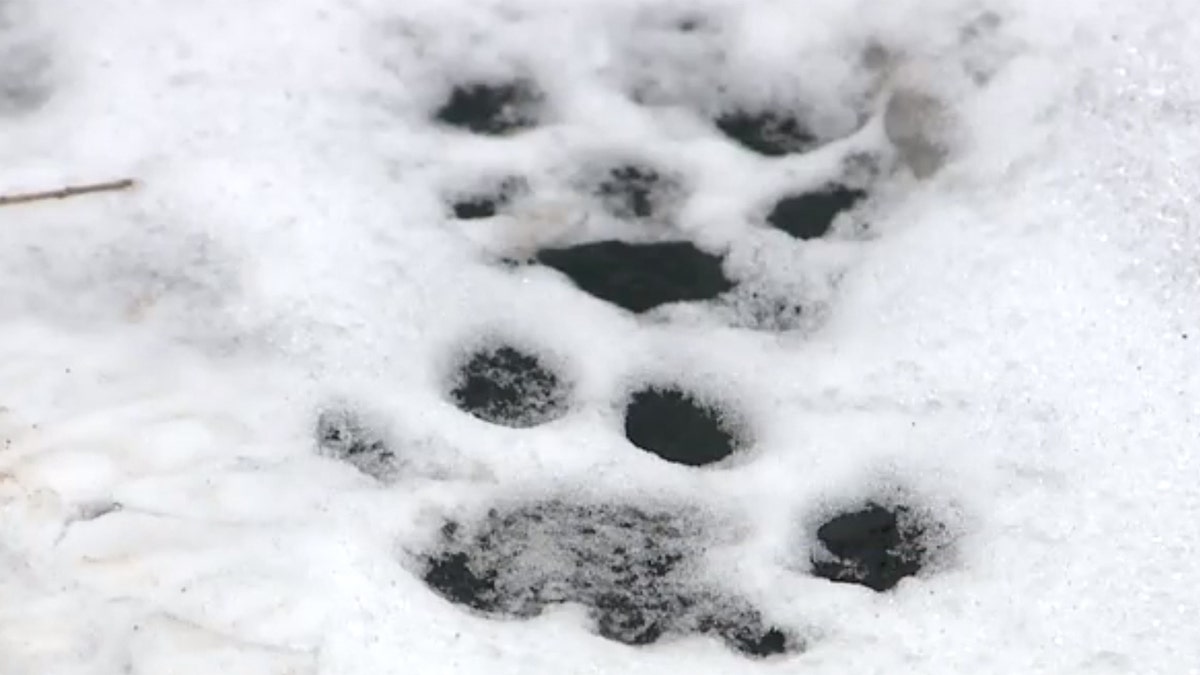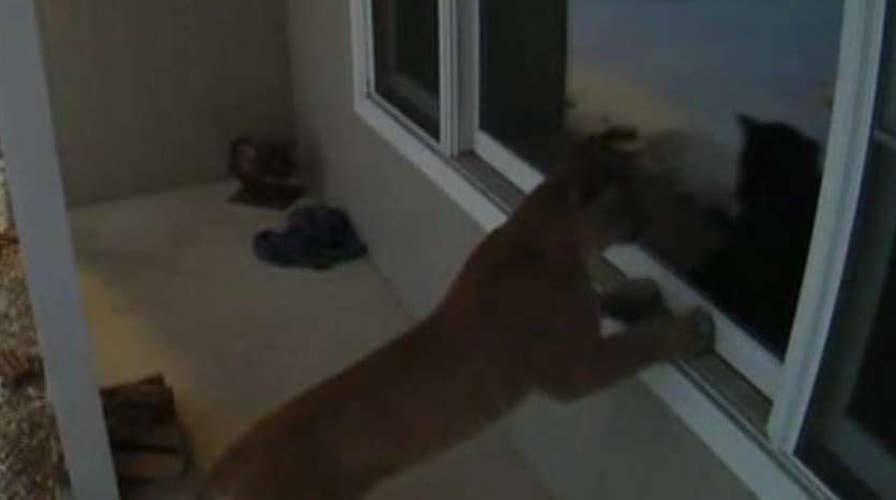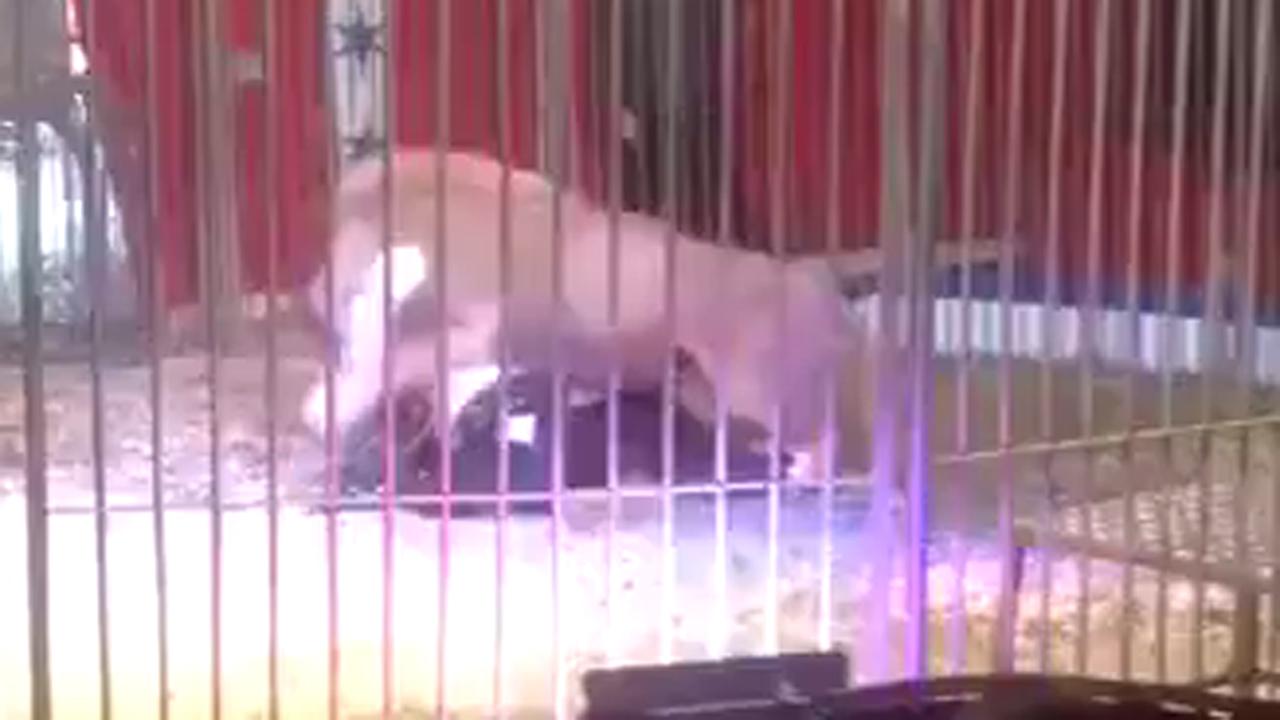A homeowner in Wisconsin got quite the surprise over the weekend when he spotted paw prints in the snow in his front yard and checked surveillance video -- only to discover he had a visit from a very large cat.
Dan Guerndt told FOX6 he was shocked to find out a cougar made a visit to his home on Saturday in Brookfield, located just west of Milwaukee.
"I couldn't believe what I saw. A really big cat," Guerndt said. "I was hoping it didn't see my cat, break the window or something."
The Brookfield Police Department said in a news release they responded to a report of a cougar under a pine tree in a resident's backyard around 6 p.m.

The paw prints from a cougar outside a home in Brookfield, Wisconsin. (FOX6)
Agents from the Wisconsin Department of Natural Resources responded to the scene, and confirmed the big cat was in fact a cougar.
"Definitely the craziest visitor we've had," Guerndt said.
Authorities said the cougar was very passive, and may have had some injury. Officers weren't able to neutralize the cougar or use a dart gun due to the proximity of nearby homes, and when they returned Sunday the animal wasn't under the tree anymore.
POLICE ARREST 5 IN KILLING OF ENDANGERED ORANGUTAN SHOT 130 TIMES
Dianne Robinson with the Wisconsin DNR told FOX6 the cougar may have left a pack in South Dakota looking for a mate, as well as food and territory. Officials believe the cat in Brookfield is the same spotted in three other counties since late last year.
"To me it just showed a certain amount of curiosity associated with the animal," Robinson said. "It jumped up, checked out the window, and moved on right away. Probably saw its reflection I would assume. That type of behavior I wouldn't be so concerned about."
BUFFALO GORES CAMPER ON SOUTHERN CALIFORNIA ISLAND
Robinson said the cougar will probably move on, and the agency is working with local authorities to track the animal to determine what the options are, depending where it ends up.
"Cougars are a protected species, so you can't necessarily shoot them, but if there's a potential safety hazard associated with that, then absolutely the DNR would work with local law enforcement and allow them to dispatch that animal," she said.











































